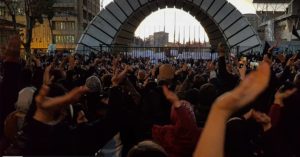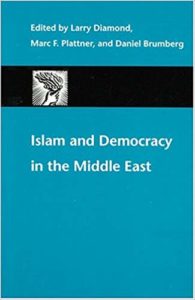

January 2020, Volume 31, Issue 1
Iranians Turn Away from the Islamic Republic
Iran is in the midst of an ideological crisis. Growing numbers of Iranians are rejecting the religious underpinnings of the Supreme Leader’s rule, and turning their backs on the Islamic Republic. The regime’s only response is harsher repression—a response that will deepen the anger that is bringing everyday Iranians out into the streets.

